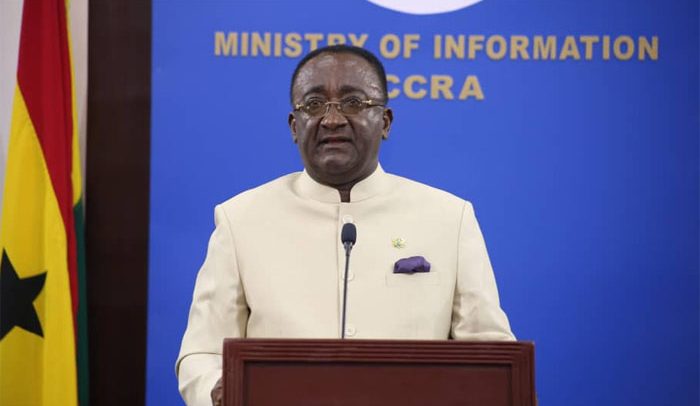Dr. Owusu Afriyie Akoto
GHANA IS expected to gain rice self-sufficiency by the year 2023.
Minister of Food and Agriculture, Dr. Owusu Afriyie Akoto, made this known to the media on Thursday, May 30, 2019, in Accra.
He said emphatically that “it is projected that domestic rice production will increase from the current 456,000 MT of milled rice (2018) and reaching self-sufficiency by producing 1,665,000 MT by 2023.”
Various initiatives being undertaken by Government are anticipated to increase production to address current deficit level of 656,000 metric tonnes to a surplus of 365,230 metric tonnes in 2023.
According to him, a number of interventions have been put in place to increase productivity and production.
He said “Ghana Government’s current agenda to transform the rice industry
targets to achieve self-sufficiency in the year, 2023.”
Under the interventions, he announced “various outcomes are expected which includes; increasing rice productivity for smallholder farmers, increasing the capacity of smallholder farming households to adopt good cultural practices, strengthening and expanding domestic access to output
market and, improving extension delivery.”
According to the Minister, the interventions collectively aim at transforming the rice value chain to ensure increased competitiveness, food and nutrition security, jobs and wealth creation nationwide.
Currently, he said, Ghana was importing on a yearly basis, $1.5 billion worth of rice.
The amount, he said, could be saved for other developmental projects like roads, hospitals, schools, from 2023 when the country gain self-sufficiency in rice production.
Seed Intervention
In the beginning of the 2017 growing season, he disclosed, a total of 1,698 metric tonnes
of rice seed were made available for cultivation. For 2018 cropping
season, a total of 2,400 MT was made available to farmers.
BY Melvin Tarlue


